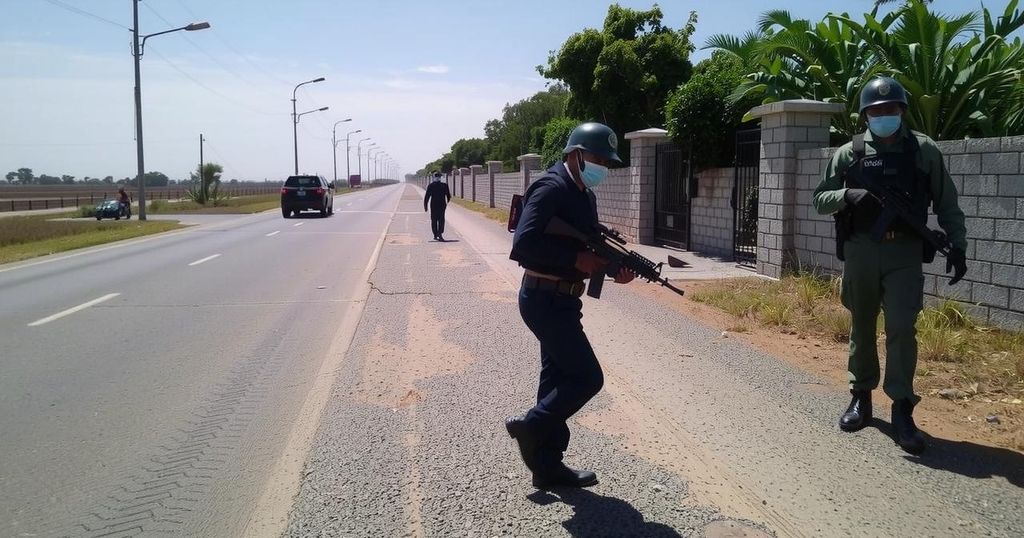South Africa has boosted security along its Mozambique border amidst escalating protests and violence following disputed election results in Mozambique. The unrest has led to 261 fatalities and an influx of refugees into Malawi, raising regional stability concerns. Active diplomatic efforts are underway between South Africa and Mozambique to address the situation.
South Africa has intensified its security measures along its border with Mozambique in response to the ongoing violent protests that erupted following the disputed presidential election results in Mozambique. The South African government’s decision aims to prevent potential crime spurred by the unrest. The protests, which have claimed at least 261 lives due to security forces’ gunfire, began after the electoral authority announced the ruling party’s candidate, Daniel Chapo, as the winner. The opposition denounced the election results, accusing the electoral process of being rigged, prompting the Constitutional Council to affirm the results with modifications that further intensified the protests.
In light of this turmoil, South Africa’s National Joint Operations and Intelligence Structure (NATJOINTS) has engaged with the Mozambican government, highlighting the countries’ strong diplomatic ties and their commitment to finding sustainable solutions for restoring order. This cooperation manifests through discussions aimed at implementing effective security measures in areas affected by the disturbances. In anticipation of the potential spillover effects of the violence, South Africa previously closed its busy border crossing, and President Cyril Ramaphosa dispatched a special envoy to engage in diplomatic talks with Mozambique.
The violence has not only resulted in domestic instability but has also caused a humanitarian crisis as approximately 3,000 refugees have fled to Malawi since last week. The influx of refugees has raised concerns about fuel imports and overall regional stability, as many are being sheltered in temporary accommodations. The situation remains fluid, and the international community is closely monitoring developments to provide necessary support and interventions if required.
The unrest in Mozambique can be traced back to the recent presidential elections, wherein the electoral authority declared the ruling party’s candidate as the victor amid allegations of electoral fraud by the opposition. The Constitutional Council’s subsequent affirmation of the results, albeit with a reduced percentage for the winning candidate, incited further violence, escalating the protests. This atmosphere of instability poses significant challenges not only for Mozambique but also for its neighbors, particularly as South Africa seeks to manage potential cross-border crime and migration stemming from the unrest.
In conclusion, the escalating violence in Mozambique has prompted South Africa to enhance its security measures along their shared border to avert crime and ensure stability. The tragic loss of life and the humanitarian implications of the protests necessitate continued diplomatic engagement between the two nations. The unfolding events underscore the need for effective conflict resolution mechanisms to restore order and protect the well-being of affected civilians.
Original Source: www.aa.com.tr






